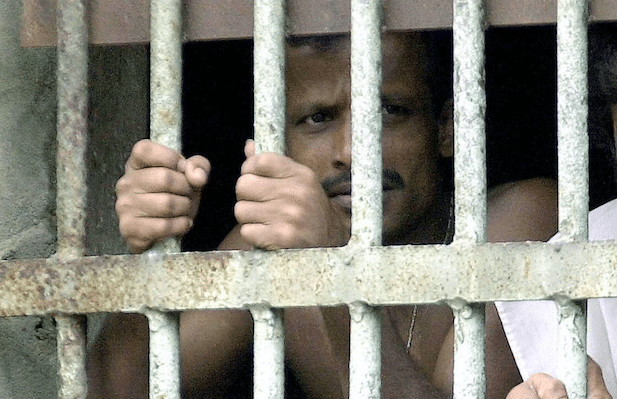The Sri Lankan government has been accused of forcing abusive anal and vaginal virginity “tests” on LGBT+ people in an attempt to prove homosexual conduct.
According to a shocking Human Rights Watch report, at least seven people have been forced into the “cruel, inhuman, and degrading” physical examinations since 2017.
Together with the non-profit Equal Ground, Human Rights Watch is calling for an end to the appalling examinations, which have been denounced by the World Health Organisation as a form of torture.
“No one should be arrested, let alone subjected to torture and sexual violence, because of their perceived sexual orientation,” said Neela Ghoshal, HRW’s associate LGBT rights director.
“Sri Lanka’s Justice Ministry should immediately bar judicial medical officers from conducting forced anal examinations, which flagrantly violate medical ethics as well as basic rights.”
Forced anal exams involve the insertion of fingers or other objects into the anus in an attempt to determine whether the person has engaged in anal sex. The practice is based on the discredited theory that anal penetration can be proved by the tone or shape of the anal sphincter.
Both anal and vaginal virginity tests are universally discredited by medical experts as violating medical ethics and lacking in any scientific basis, and the World Medical Association has called on doctors to stop taking part in the practice.
Despite this, a lawyer told the watchdog that in the last 12 months all six of the defendants he represented in homosexual conduct cases were subjected to anal exams, which prosecutors used in court as “evidence” of past anal penetration.
The accused alleged having been subjected to other abuses, including being whipped with wires. Three men were ordered to undergo HIV tests without their consent, the results of which were made public in court.
The horrifying treatment was committed under Sections 365 and 365A of the Sri Lankan Penal Code, which prohibits “carnal intercourse against the order of nature” and “gross indecency between persons”.
Human Rights Watch also documented that other laws, including a vaguely worded Vagrancy Law and a penal code provision banning “cheating by personation,” are also used to target transgender and gender non-conforming people for arrest.
Yet Sri Lanka’s government has consistently denied the abuse, with the Sri Lankan attorney general claiming in 2014 that the penal code was not used to target LGBT+ people and that enforcing the law in a discriminatory fashion was unconstitutional.
